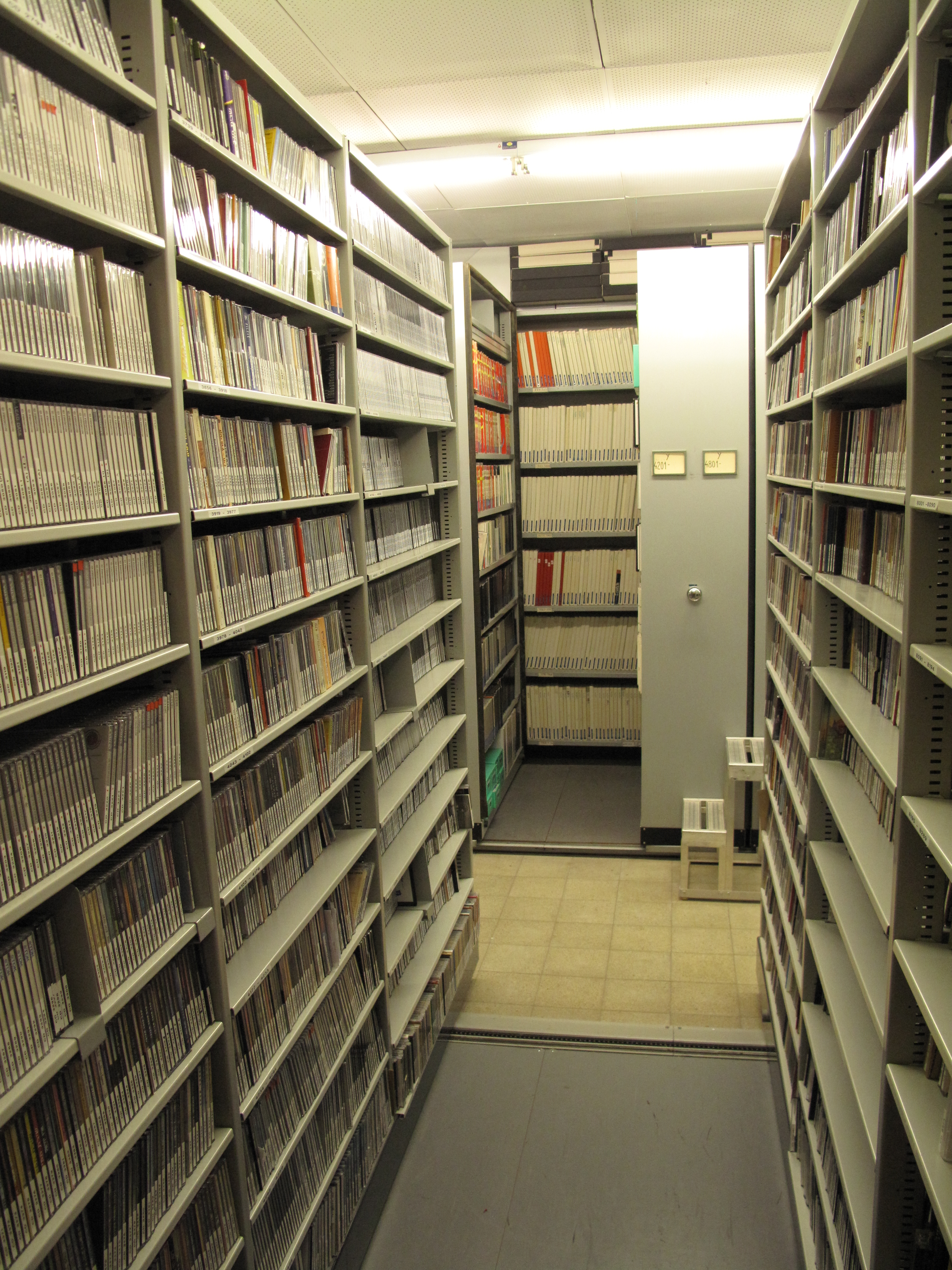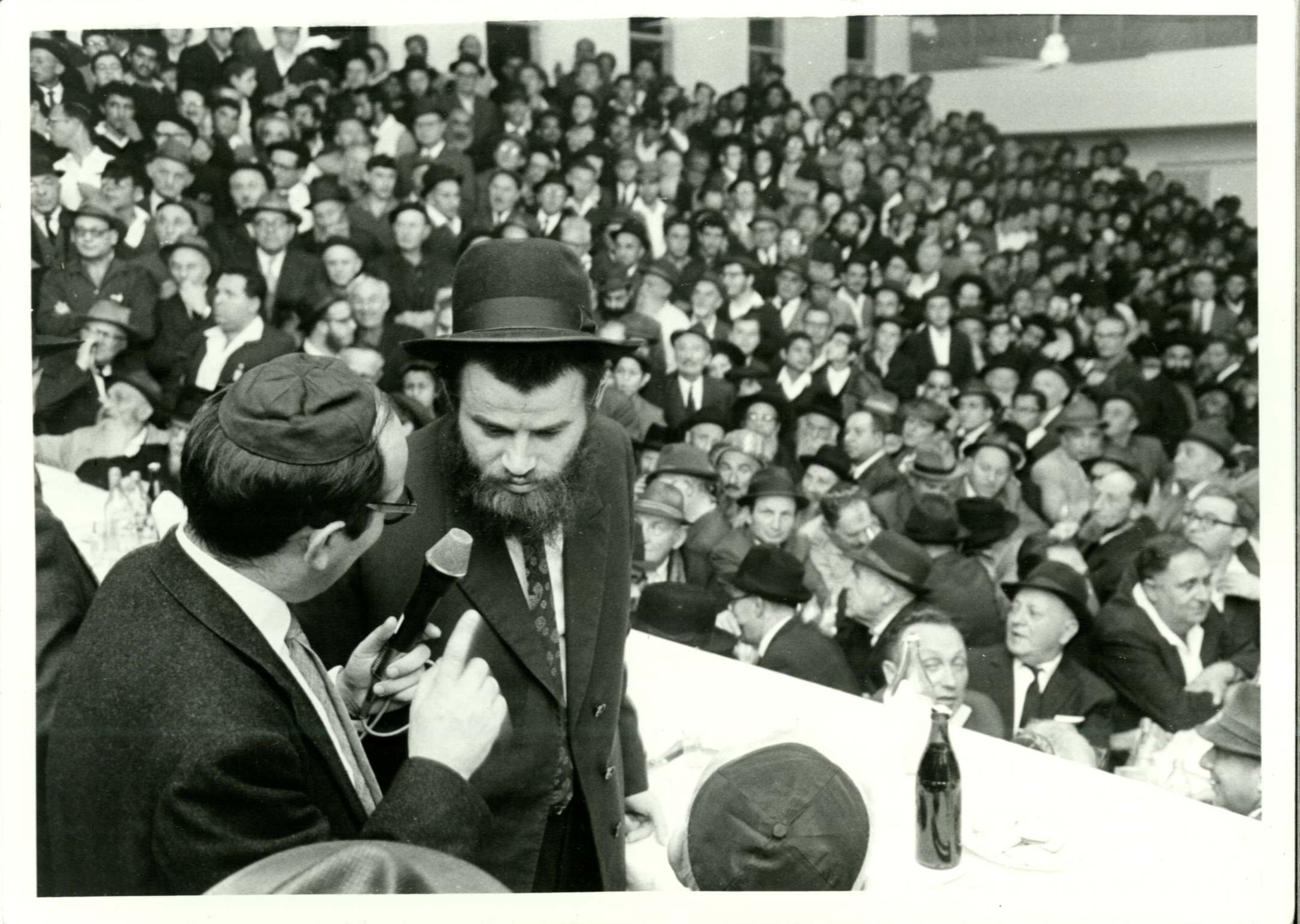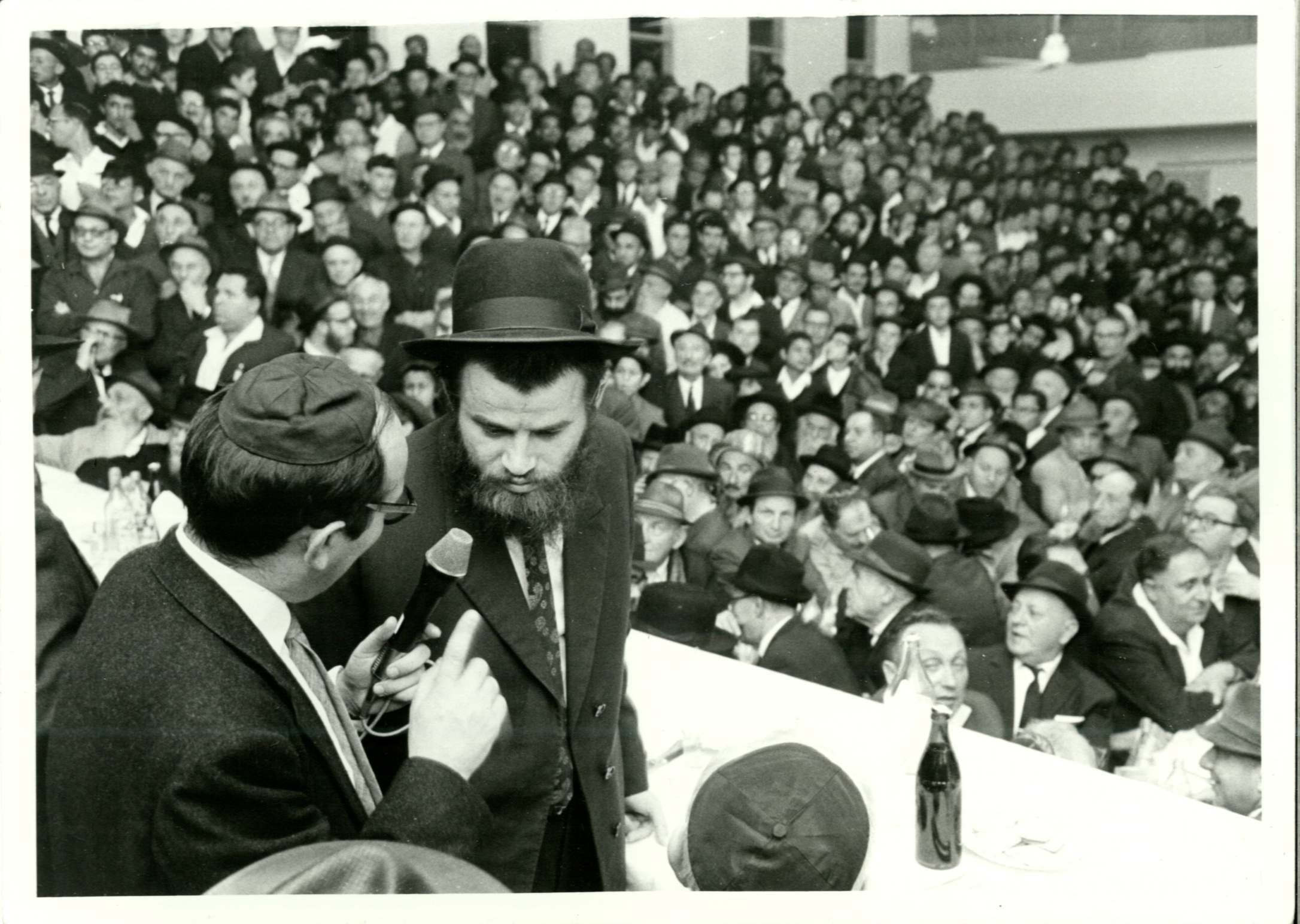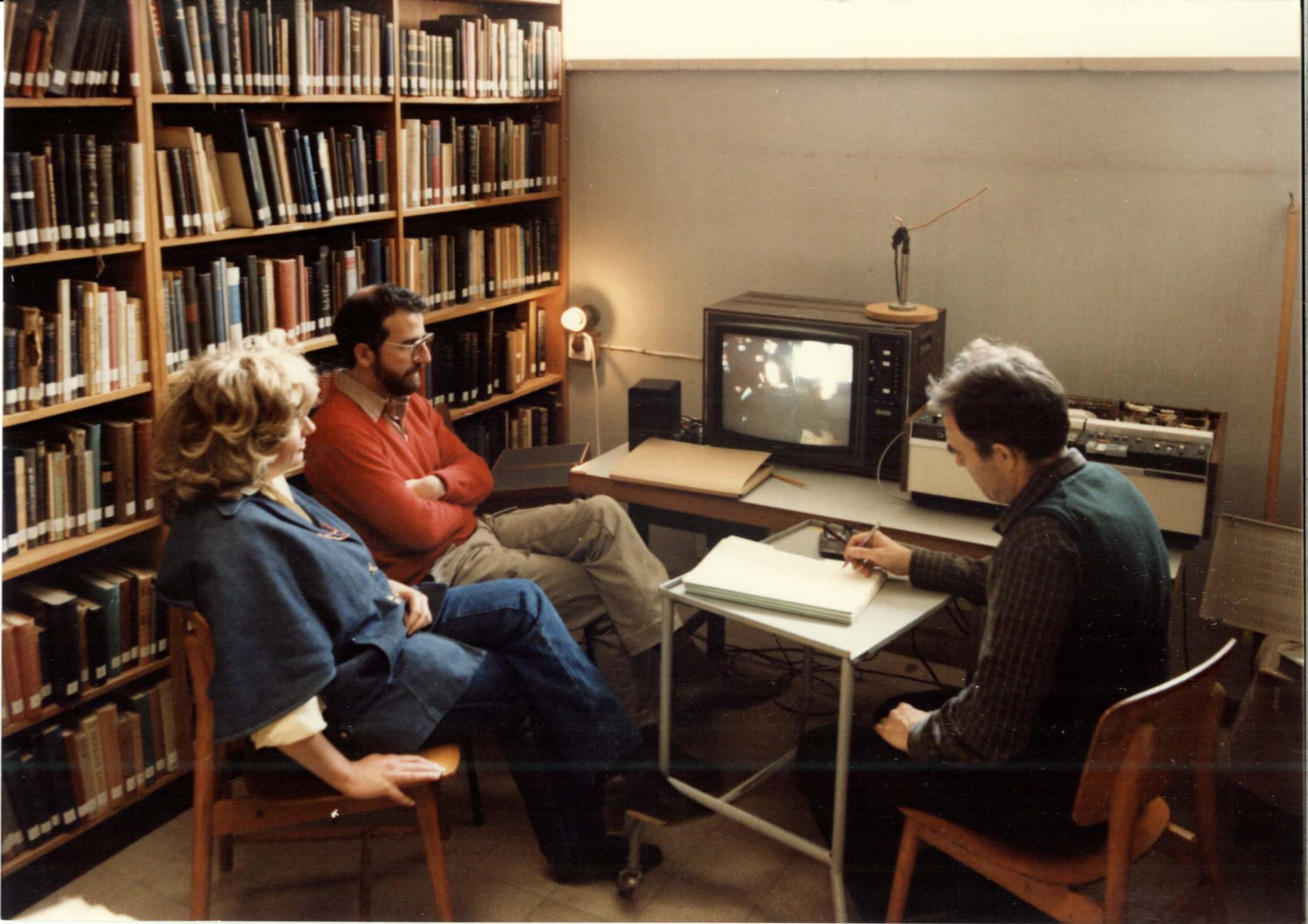Matan Vigoda: "There's No Magic Recipe for a Successful Tune, But When Someone Sings from the Soul, It Shows"
Matan Vigoda is responsible for a vast collection of Jewish tunes from all eras at the National Library. If you've ever wondered about the oldest tunes, their origins, and what makes the tunes of the High Holy Days resonate so deeply, here are some answers.

"Avinu Malkeinu, have mercy on us..." "Hayom Harat Olam..." "Ah, Kol Nidrei..." Who can enter the High Holy Days without humming the familiar tunes that touch every chord of the soul? These melodies are an integral part of the Days of Awe, and often they help us focus during prayers and pour out our hearts before the Creator.
But there are those who engage with these tunes, as well as other Jewish melodies, all year round. This is Matan Vigoda, who works as a cataloger in the music department of the National Library. Matan has taken on the unique and challenging task of tracing Jewish tunes and songs from the past and present. As part of his role, he tracks and documents every song related to Judaism or the Jewish people, and when it comes to the High Holy Days, he presents an impressive collection. "It's hard for me to gauge the number of tunes we have, but statistically, the number of tunes for the High Holy Days is much greater compared to any other holiday or any other category."
In his opinion, this is no wonder. "It's clear why these days have been given so many piyyutim, as they encompass so many tears, emotions, and pleas, which inevitably go hand in hand with Jewish music."
 View of the National Sound Archive shelves
View of the National Sound Archive shelves
Following the Tune
Matan Vigoda not only catalogs the tunes in the library but also researches each tune that reaches them to understand where it came from and its source. "There are tunes we know very well where they originated, like the well-known tune of 'Marei Kohen,' which might sound very ancient to people, but the truth is that it is attributed to the London Cantors from the 1960s. Similarly, there are many other tunes for which we are certain of their origins. However, there are tunes that reach us through indirect paths after surviving communities during the Holocaust. In such cases, we cannot pinpoint who composed these tunes or precisely where they came from.
"Let me give an example," he continues, "recently a family named Twersky came to us, whose grandfather was one of the rabbis of the Chernobyl Hasidic dynasty and left a recording for his children with tunes he sang, so they could continue the family tradition. One of the songs on the recording was the tune 'Adon Olam,' sung during the Shacharit prayer of the High Holy Days. It's a very special tune, and as a result of the Twersky family's recording, we managed to find other similar versions from earlier years, allowing us to assert that this melody also has validations outside the Hasidic court and has existed for hundreds of years.
 Likely a Chabad gathering, from a tape transferred to the library
Likely a Chabad gathering, from a tape transferred to the library"Thus, we conduct research regarding other tunes that come to us. They don't always come as recordings; sometimes just as notes or 'cantor's notebooks' presented by descendants of cantors from days gone by. When we decipher what is written in them, we sometimes discover treasures."
And Matan notes that these treasures stand out mainly in the tunes of the High Holy Days because this is the pinnacle of cantorial art. "This is the place where the prayer leaders showcase their musical skills most prominently."
And what is the oldest tune in your collection?
"It's hard for me to answer that, but we are sure that there are tunes that are very significant anchors on the High Holy Days, like the tune before 'Barechu,' or the tune of Aleinu L'shabeach, and of course the 'Kol Nidrei' tune – we suspect that these tunes existed in the Middle Ages, and possibly even before that. I can't say that they came from Sinai, but I also can't say they didn’t."
But how can you know what was sung in the Middle Ages?
"We have various written testimonies that confirm the continuity of certain tunes. For instance, if we trace the students of a specific rabbi's students who all speak of the same melody and the same tunes, and even bring quotes from the rabbi who insisted they shouldn't be changed, along with bans not to alter these tunes, we can infer that they existed in the distant past. How distant? As I said – we will never know. However, I can say that our findings prove that in Ashkenazi communities, there were more bans of this sort than in Eastern communities, where there was greater freedom to change tunes."
Tunes from the Soul
The conversation with Matan is fascinating. Occasionally, he stops and starts humming a tune here and there. It's clear that he lives and breathes the tunes. "When it comes to the High Holy Days tunes, I miss them anew every year; I genuinely yearn for them," he admits.
You're certainly not alone... Could you perhaps explain what it is about these tunes that penetrate the heart so deeply?
"I think there's something in Jewish prayer that doesn't exist in any other language's tune, and I have no definitive explanation for it. There is no magic recipe for a successful tune. It's not as if adding certain notes or twists will make people shed a tear. It doesn't work that way. My only explanation is that when there's a tune composed genuinely from the deepest part of one's soul, it shows. An example of this is Rabbi Shlomo Carlebach – his tunes, at least some of them, are quite simple, even very simple, but they contain his soul, which is why many people connect with them."
 Likely a gathering in Kfar Chabad, from materials transferred to the library
Likely a gathering in Kfar Chabad, from materials transferred to the libraryGenerally, it is believed that the tunes of the past are more successful than today's. Is this true?
"I actually think otherwise," he surprises. "Because there's something so special about Jewish prayer precisely because it combines tunes that have existed for hundreds, perhaps thousands of years, with fresh tunes just out of the oven, composed by today's composers like Aharon Razel, Avraham Fried, Mordechai Ben David, and others. These piyyutim have entered the synagogues in recent years and have become integral parts of the services. It's a mix like no other."
However, along with this, he emphasizes that because we all see the great importance of tunes passed down through generations, it's crucial to preserve every piece of existing material on the subject to ensure it is carried forward to future generations. "Not a week goes by without us receiving at least one new recording," he shares, "and sometimes decoding the recording takes a long time, but ultimately we are pleased to serve as a home for all these important recordings to present them to the public who finds them useful."
 Researchers examining a video tape
Researchers examining a video tapeAnd what uses do people have for the recordings you present?
"There is a wide range of possibilities – from a Bar Mitzvah boy who wants to learn his Torah portion and wishes to hear a recording that resembles his own tradition, to a researcher dealing with some musical subject, or a music enthusiast interested in a specific aspect of Jewish or Israeli music. Some people come to uncover archives of Israeli composers, look for wedding songs from a certain source, or songs traditionally sung at Chabad gatherings, and so forth. The more people come to us, the more we realize how diverse and complex this vast and endless puzzle of Jewish music across the ages is. While we have a pretty good picture of this puzzle, we lack parts that we assume exist with private individuals. It's clear to us the picture will never be perfect, but we aspire for it to be as complete as possible."

